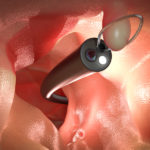By David Blyweiss, M.D., Advanced Natural Wellness
October 12, 2015
- Clearing up the confusion about aspirin and colon cancer
- How nearly half of colon cancers can be nipped in the bud
- Prevention is the best cure
Every now and then, a medical study pops up that the media gloms on to.
But just because the newshounds might think it sounds like a great idea, it doesn’t mean you should hop on the bandwagon and take their advice.
For example, every few years a study comes out that finds aspirin or other non-steroidal anti-inflammatory (NSAID) drugs reduce your risk of colon cancer.
In September, the Wall Street Journal reported, “An influential federal panel recommended daily low-dose aspirin for men and women ages 50 to 69 to prevent heart attacks, stroke and colorectal cancer..” Every time this happens I clench my teeth. It sends a confusing message to you and to my patients…and makes everyone think NSAIDs are a wonder drug.
I’m going to be honest with you.
Nobody gets colon cancer because they aren’t popping enough pain relievers. And no major health organization, including the American Cancer Society, recommends taking any type NSAID to cut your cancer risk.
In fact, recommending this type of therapy as a first line of defense for colon cancer is downright dangerous.
Aspirin greatly increases your risk of gastrointestinal bleeds.
If that’s not bad enough, taking an aspirin every day also can also cause intracranial hemorrhaging. This is a type of bleeding that occurs inside the skull. And it accounts for about 10% of all strokes in the U.S.
To top it off, regular aspirin use can just about double your risk of developing macular degeneration, or AMD, over the next 10 years. AMD is the leading cause of blindness in people over 60 years of age!
Other NSAIDS are just as dangerous. All of them increase your chances of a heart attack or stroke. And these risks can occur as early as the first weeks of using an NSAID. The risk increases the longer you use them.
Here’s the deal. There’s no reason to open yourself up to health risks in the hope of staving off colon cancer.
The World's Quickest Solution for Ending Prostate and Urinary Misery
This has recently been revealed to be one of the only real breakthroughs in prostate health.
The seeds of a strange fruit (sometimes called "Chinese Apples") hold powerful phytonutrients that are a revolution in prostate health.
In fact, UCLA and Veterans Administration research have now proved this to be true.
Not only that, but it may be the worlds quickest solution for ending prostate misery.
Simply stated, these phytonutrients represent a huge step beyond beta sitosterol, saw palmetto, and other phytosterols alone.
Simply click HERE if you want to have fast prostate relief...restful, uninterrupted sleep...no more constant "urges to go"...enhanced virility...and optimal prostate support for life.
The truth is, diet, staying a healthy weight and being physically active can prevent almost half of colon cancers in the U.S. These are much healthier and more effective ways to slash your risk of this deadly killer.
Now, you already know the Mediterranean way of eating is one of the healthiest in the world. It’s low in foods that place you at very high risk for colon cancer, like red and processed meats, sugars and refined carbs. This style of eating is also low in omega-6 fatty acids that can initiate the formation of cancer cells.
At the same time, it’s packed full of cancer fighting foods.
This includes antioxidant- and fiber-rich fruits, vegetables and legumes. Plus, it’s especially high in chemo-protective omega-3s.
Eating like a Mediterranean, along with moderate physical activity, also helps you maintain a healthy weight. This is an added benefit, since lack of exercise and obesity are both strongly linked to increased risk of colon cancer.
Powerful cancer fighting supplements can offer added protection. I especially like pomegranate extract, aged garlic, resveratrol and a good probiotic.
Prevention isn’t the only step you can take. Colon cancer is also one of the most treatable forms of cancer. But only if you catch it early enough. This makes a routine colonoscopy one of those lousy medical procedures that actually makes sense.
However, I find that many of my patients roll their eyes and groan at the mere mention of the dreaded colonoscopy. And unfortunately, the prep is so unpleasant that many people put it off. Forever.
Does this sound like you?
If so, I recommend that you at least investigate some of the newer tests. A few of them have basically zero prep time and aren’t nearly as invasive.
For example, fecal immunochemical tests (FIT or iFOBT) have an important place in screening. They’re used to check for small amounts of blood in the stool that can’t be seen by the naked eye. Normally, a follow-up colonoscopy would only be recommended if the test results are positive.
Stool DNA testing is another option. This test looks for abnormal genetic material that can signal the presence of cancer cells or polyps in the colon. Once again, if the results are positive, a colonoscopy will be recommended.
These steps will serve you much better than risking your health by taking an NSAID each day and hoping for a miracle.






